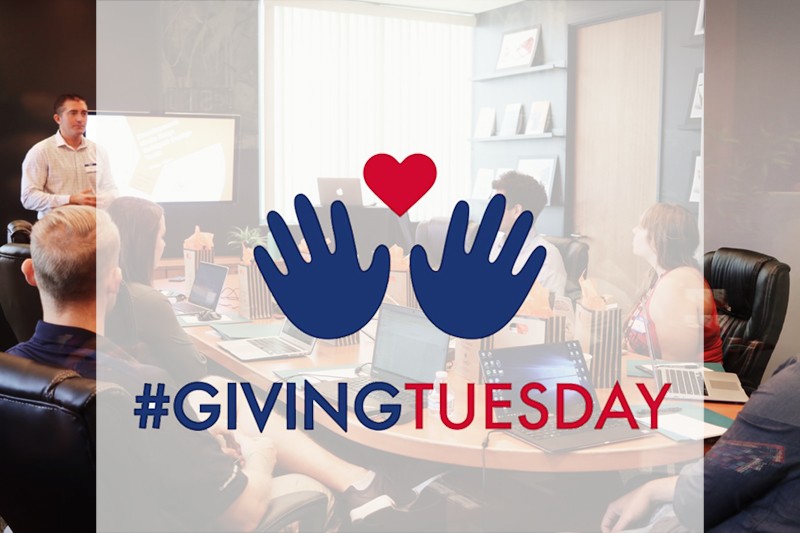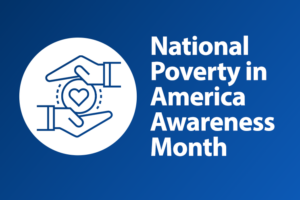Jeb Banner, CEO of Boardable | February 6, 2020
Board Member Engagement: Extending Giving Tuesday Throughout the Year
Giving Tuesday gets so much publicity these days, with thousands of nonprofit vying for attention in online campaigns, direct mail, fundraising events, and more. If you plan heavily for Giving Tuesday, you probably spend a lot of time ensuring your board is actively involved in your campaigns. Wouldn’t it be nice to extend that engagement all year round? With the right perspective and planning, you can keep those board members participating (and making an even more significant impact) throughout the rest of your calendar. Here are some tips for board chairs, executive directors, or any other nonprofit board leaders.
Is Giving Tuesday really that impactful for nonprofits?
This day of fundraising for nonprofits has no doubt raised awareness about supporting charitable causes, but it pales in comparison to the rest of the year. According to Next After, charities earn 3.5x more on December 31st than they do on Giving Tuesday. So why all the fuss on this one day?
Giving Tuesday provides an easily understood reason to reach out to new or existing donors. The key is to build that same excitement and enthusiasm your board members hopefully have for Giving Tuesday and generate it for other drives throughout the year. Here are some simple tips for where to start.
Use your data.
Every time you conduct a campaign like Giving Tuesday, it is tempting to just look at the overall sum raised and stop your analysis there. By gathering more donor data throughout the year, your board can get significant insights into where you need to improve and where you are doing great. For example, is your average time between donation and thank-you less than 48 hours? If not, your board members may need to be more engaged in accomplishing this. Where do you stand on repeat donors, lapsed donors, donation growth? If you notice your Giving Tuesday (or any other annual campaign) decreasing year over year, it may be something your board should investigate. Be sure to communicate the numbers to your board regularly throughout the year – not just after a major campaign or at the end of the year. Ideally, you would have a live dashboard available to them that tracks important goals and shows progress. With the right information, they can get creative about ways to improve.
Make it easy.
The most sure-fire way to lose your board members’ attention after Giving Tuesday and throughout the year is to put up barriers to engagement. Asking board members to post something on social media? Provide them with all the wording, images, and hashtags or handles they will need in a convenient place. The same goes for event invitations, donation solicitations, networking, and pretty much anything you’d like your board members to do on behalf of the organization. Make sure you’re telling these busy professionals exactly what you need, when you need it, and they can help.
Give recognition.
Just because board members are likely fairly accomplished professionally, it doesn’t mean they wouldn’t like some appreciation for their successes and efforts. It doesn’t have to be big or flashy or expensive. This is where it is crucial to “know your audience.” If you have a boisterous and outgoing board member, they might appreciate a group shout-out in a meeting. Your more reserved board members may prefer a personal phone call or quick email message saying you noticed their hard work and want to congratulate them for their success. It helps to have small goals that are reachable on a month-to-month basis, not simply celebrating giant fundraising goals. It could be as simple as a monthly donor thank-you phone call or card goal, a set number of coffees or networking touches per month, or progress on a silent auction donation. Find reasons to celebrate your board members and help them feel they are valued and “winning.”
There’s always room to learn.
Remember, it may take some trial and error to figure out what motivates your board throughout the year. You might even outright ask them what would make their work more rewarding all year round. Giving Tuesday is an important nonprofit fundraising event, but if you can optimize the rest of your board’s calendar, you’ll go far further than you would with even the best Giving Tuesday.
About Jeb Banner:
Jeb is the founder and CEO of Boardable, a nonprofit board management software provider. He is also the founder of two nonprofits, The Speak Easy and Musical Family Tree, as well as a board member of United Way Central Indiana and ProAct. Jeb is based in Indianapolis, Indiana.
About Boardable:
Boardable is an online board management portal that centralizes communication, document storage, meeting planning, and everything else that goes into running a board of directors. Founded in 2016 by nonprofit leaders and founders, Boardable has a mission to improve board engagement for nonprofits. Boardable is based in Indianapolis, Indiana.

Get Resources and Insights Straight To Your Inbox
Explore More Articles
Open Position: Customer Service Coordinator (Remote-Part Time)
Position Title: Customer Service Coordinator (Remote – Part Time) Department: Charitable Funds Management Solutions We are a non-profit charitable organization looking for skilled individuals who…
Read ArticleGet Resources and Insights Straight To Your Inbox
Receive our monthly/bi-monthly newsletter filled with information about causes, nonprofit impact, and topics important for corporate social responsibility and employee engagement professionals, including disaster response, workplace giving, matching gifts, employee assistance funds, volunteering, scholarship award program management, grantmaking, and other philanthropic initiatives.


 Jeb is the founder and CEO of
Jeb is the founder and CEO of 

